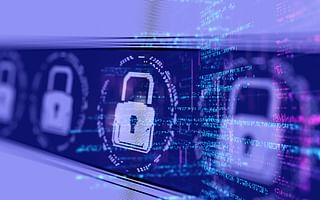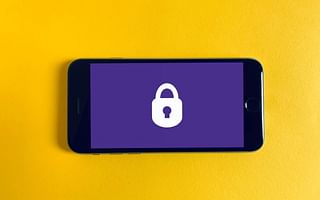Dean Reilly is a seasoned professional in penetration testing and ethical hacking. His unique methodology in uncovering security vulnerabilities has led to numerous organizations bolstering their cybersecurity measures. Dean strongly advocates for the dissemination of knowledge and frequently shares his insights on ethical hacking.
Hey there! Privacy in the digital world is a hot topic these days, and for good reason. With the increasing amount of personal data being shared online, it's important to take steps to protect your privacy. In this digital age, where cyber threats are constantly evolving, it's crucial to be proactive and implement effective privacy protection methods. Here are some best practices to help you secure your online information and maintain your digital privacy.
1. Use strong and unique passwords: One of the simplest yet most effective ways to protect your privacy is by using strong and unique passwords for all your online accounts. Avoid using common passwords like "123456" or "password." Instead, create complex passwords that include a combination of uppercase and lowercase letters, numbers, and special characters. Additionally, make sure to use a different password for each online account to prevent a single breach from compromising multiple accounts.
2. Enable two-factor authentication (2FA): Two-factor authentication adds an extra layer of security to your online accounts. It requires you to provide a second form of verification, such as a unique code sent to your phone, in addition to your password. By enabling 2FA, even if someone manages to obtain your password, they won't be able to access your account without the second factor.
3. Be cautious with public Wi-Fi: Public Wi-Fi networks can be a breeding ground for cybercriminals. Avoid accessing sensitive information, such as online banking or personal emails, while connected to public Wi-Fi. If you must use public Wi-Fi, consider using a virtual private network (VPN) to encrypt your internet traffic and protect your data from prying eyes.
4. Regularly update your software and devices: Keeping your software and devices up to date is crucial for maintaining your digital privacy. Software updates often include security patches that address vulnerabilities that could be exploited by hackers. Set your devices and applications to automatically update, or regularly check for updates manually.
5. Be mindful of what you share online: Think twice before sharing personal information on social media or other online platforms. Be cautious about the information you provide, such as your full name, address, phone number, or birthdate. Remember, once something is posted online, it can be difficult to completely remove it.
6. Regularly review your privacy settings: Take the time to review and adjust the privacy settings on your social media accounts and other online platforms. Limit the amount of personal information that is publicly visible and consider who you want to share certain information with.
7. Educate yourself about phishing: Phishing is a common tactic used by cybercriminals to trick individuals into revealing sensitive information. Be wary of suspicious emails, messages, or phone calls asking for personal information or login credentials. Avoid clicking on suspicious links and verify the legitimacy of the source before providing any information.
8. Consider using privacy-focused tools: There are various privacy-focused tools available that can help enhance your digital privacy. For example, using a privacy-focused search engine, like DuckDuckGo, can prevent your search queries from being tracked and stored.
Remember, protecting your privacy in the digital world is an ongoing process. By implementing these best practices and staying informed about the latest privacy threats and protection methods, you can take control of your digital privacy and stay secure online.
I hope you find these tips helpful! If you have any more questions or need further assistance, feel free to reach out. Stay safe and secure in the digital world!















